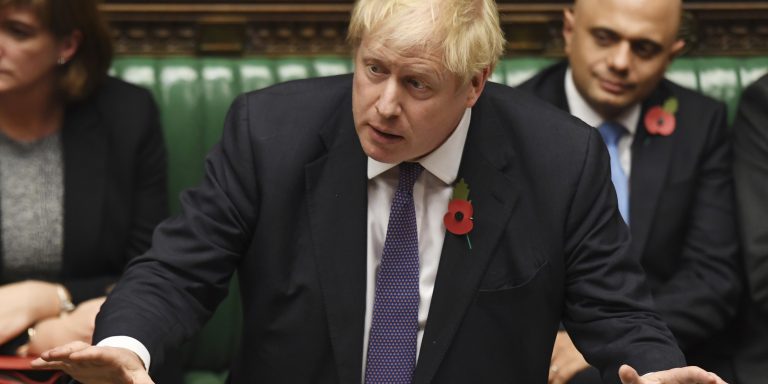INTELBRIEF
October 31, 2019
IntelBrief: Brexit and Flashbacks to the Past in Northern Ireland

- Deeply dissatisfied with UK Prime Minister Boris Johnson’s Brexit proposal, disgruntled Unionists in Northern Ireland have gathered to loudly voice their opposition.
- Paramilitary activity throughout Northern Ireland has been on the rise, calling into question for the first time since the late 1990s, the stability of the Good Friday Agreement.
- The New Irish Republican Army (I.R.A.), an offshoot of hardline dissidents, has increased paramilitary activities over the past year.
- The ongoing debate over the so-called ‘Irish backstop’ will have real and lasting implications for peace and stability in Northern Ireland.
.
On 29 October, British Prime Minister Boris Johnson was granted his desire to hold a general election on 12 December. Whatever happens with the elections, Johnson has already made some enemies along the way with all of the Brexit drama, especially in Northern Ireland. Deeply dissatisfied with the contours of the Prime Minister’s proposal, specifically the intention to remove Britain from the European Union (EU) while leaving Northern Ireland in the customs union and single market, disgruntled Unionists have gathered to loudly voice their opposition. Unionists see this as a blatant betrayal of promises made to them by successive British politicians. One of the Unionists’ primary fears is that an economically united Ireland is merely a prelude to a broader unification in the future, something that can only be achieved through referendums in Northern Ireland and the Republic of Ireland, per the terms of the Good Friday Agreement of 1998.
The Democratic Unionist Party (DUP) is against Johnson’s plan and insists that the proposal creates an ‘Irish Sea border’ that ultimately serves to weaken the union between Northern Ireland and the United Kingdom. The turmoil has sent shockwaves throughout the six counties of the country, with politicians in London and Dublin also keeping close watch on creeping instability. Unionists, who are Protestants in Northern Ireland that favor remaining a part of the United Kingdom and who have jousted with their Catholic counterparts for political power, were a major player in three decades of conflict in Northern Ireland, often referred to as ‘The Troubles.’ Paramilitary activity throughout Northern Ireland has been on the rise, calling into question for the first time since the late 1990s, the stability of the Good Friday Agreement.
The prospect of Brexit has paved the way for the reemergence of Irish republican militancy, as well. The New Irish Republican Army (I.R.A.), an offshoot of hardline dissidents, has increased paramilitary activities over the past year. In January, a bomb was detonated outside of a courthouse in Derry, long the scene of bitter fighting between Catholics and Protestants. The IRA splinter group also launched mortar attacks against the Police Service of Northern Ireland and mailed parcel bombs to numerous locations across Britain, including airports, train stations, and universities. In April, journalist Lyra McKee was killed by a gunman from the New I.R.A., prompting outrage across Northern Ireland and causing leading figures from both Catholic and Protestant communities to denounce paramilitary activity while warning against a return to violence.
A return to violence in Northern Ireland would be devastating on multiple levels. It would upend what has often been hailed as a model of conflict resolution, a rare bright spot in a series of otherwise fragile settlements in the post-Cold War era. More than 3,000 people were killed during ‘The Troubles,’ which destroyed Northern Ireland’s economy and contributed to violent sectarianism that claimed the lives of innocent civilians. The ongoing debate over the so-called ‘Irish backstop’ and whether or not there will be a ‘hard’ border between Northern Ireland and the Republic is more than just a side discussion to Brexit—it will have real and lasting implications for peace and stability in Northern Ireland. This includes the potential for a significant resumption of criminal activities, including smuggling and trafficking, with major implications on a renewed ‘crime-terror’ nexus in Northern Ireland that could fund the activities of a range of paramilitary groups, criminal gangs, and terrorist splinter organizations.
.
For tailored research and analysis, please contact: info@thesoufancenter.org